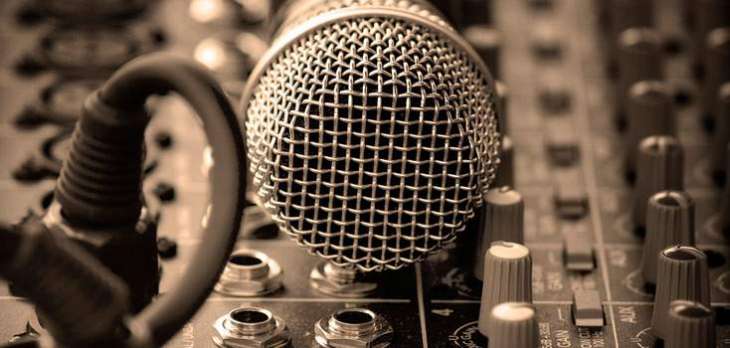advertisement
#WorldRadioDay: World marks seventh edition of World Radio Day 2018
The World has marked the seventh edition of World Radio Day. World Radio Day is a day set aside to…

The World has marked the seventh edition of World Radio Day.
World Radio Day is a day set aside to celebrate the unique power of radio to touch lives and bring people together across every corner of the globe and its contribution to development, democratic debate through information, entertainment and audience interaction.
ITU, as part of the World Radio Day Committee, is joining in the global celebrations for the seventh edition of World Radio Day 2018, under this year’s theme: Radio and Sports.
advertisement
To make this possible, ITU has promised to continue working to ensure that transmission standards and spectrum are available – for example, for key 5G performance requirements for IMT-2020, as well as for digital radio in MF, HF and VHF broadcasting bands – thus ensuring the sustainable development of the wireless eco-system.
“The wireless ecosystem is flourishing, as illustrated by the continuous growth in the use of wireless radiocommunications. Information and communication technologies (ICTs), of which radiocommunications are an essential part, form the backbone of today’s digital economy and have enormous potential to fast forward progress on the United Nations’ Sustainable Development Goals (SDGs) and improve people’s lives in fundamental ways,” said Houlin Zhao, ITU Secretary-General in a statement.
“Leveraging technology, and radiocommunications in particular, to achieve the global Sustainable Development Goals, is possible thanks to the various activities carried out in the ITU and its membership to adopt international regulations, standards and best practices that promote efficient use and spectrum harmonization, enabling economies of scale and affordable service throughout the World,” said François Rancy, Director of the ITU Radiocommunication Bureau.
advertisement
Radio is still the most dynamic, reactive and engaging medium there is, adapting to 21st century changes and offering new ways to interact and participate, made possible through a ubiquitous wireless world connected by ITU.
Radio is specifically suited to reach remote communities and vulnerable people: the illiterate, the disabled, women, youth and the poor, while offering a platform to intervene in the public debate, irrespective of people’s educational level.
Furthermore, radio has a strong and specific role in emergency communication and disaster relief.
advertisement
There is also a changing face to radio services which, in the present times of media convergence, are taking up new technological forms, such as broadband, mobiles and tablets. However, it is said that up to a billion people still do not have access to radio today.
History of World Radio Day
UNESCO’s General Conference, at its 36th session, proclaimed World Radio Day on 13 February.
This is after UNESCO’s Executive Board recommended to the General Conference the proclamation of World Radio Day, on the basis of a feasibility study undertaken by UNESCO, further to a proposal from Spain.
Radio is the mass media reaching the widest audience in the world. It is also recognized as a powerful communication tool and a low cost medium.
A wide consultation process started in June 2011, carried out by UNESCO. It included all stakeholders, i.e. broadcasting associations; public, state, private, community and international broadcasters; UN agencies; funds and programmes; topic-related NGOs; academia; foundations and bilateral development agencies; as well as UNESCO Permanent Delegations and National Commissions.
Among the answers, 91% were in favour of the project. The leader of the project, the Academia Española de la Radio, received over 46 letters of support from diverse stakeholders, including the Arab States Broadcasting Union (ASBU), the Asia-Pacific Broadcasting Union (ABU), the African Union of Broadcasting (AUB), Bangladesh NGOs Network for Radio and Communication (BNNRC), the Caribbean Broadcasting Union (CBU), the European Broadcasting Union (EBU), the International Association of Broadcasting (IAB), the North American Broadcasters Association (NABA), the Organización de Telecomunicaciones Ibeoramericanas (OTI), BBC, URTI, Vatican Radio, etc.
The date of 13 February, the day the United Nations radio was established in 1946, was proposed by the Director-General of UNESCO. The objectives of the Day will be to raise greater awareness among the public and the media of the importance of radio; to encourage decision makers to establish and provide access to information through radio; as well as to enhance networking and international cooperation among broadcasters.
The consulted stakeholders also proposed ideas for the programme of celebration: extensive use of social media, annual themes, a dedicated website enabling virtual participation, special radio programmes, radio programmes exchange, a festival involving key partners, and so forth.
On 14 January 2013, the United Nations General Assembly formally endorsed UNESCO’s proclamation of World Radio Day. During its 67th Session, the UN General Assembly endorsed the resolution adopted during the 36th session of the UNESCO General Conference, proclaiming 13 February, the day United Nations Radio was established in 1946, as World Radio Day.